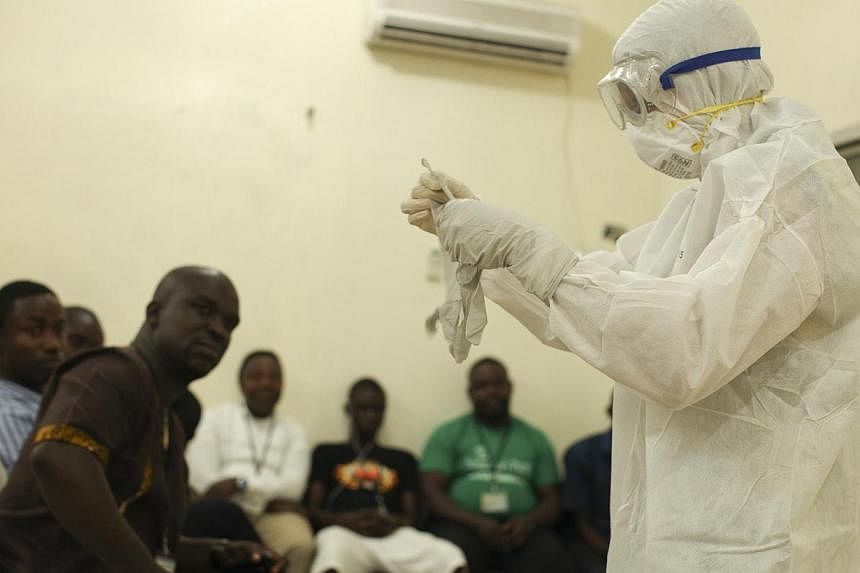CHICAGO (REUTERS) - A US aid worker who was infected with the deadly Ebola virus while working in West Africa is coming back to the United States to be treated in a high-security ward at Emory University Hospital in Atlanta, hospital officials said on Thursday.
The aid worker, whose name has not been released, will be moved in the next several days to a special isolation unit at Emory. The unit was set up in collaboration with the US Centers for Disease Control and Prevention. It is one of only four in the United States.
CDC spokeswoman Barbara Reynolds said her agency is working with the US State Department to facilitate the transfer.
Reynolds said the CDC is not aware of any Ebola patient ever being treated in the United States, but five people in the past decade have entered the United States with either Lassa Fever or Marburg Fever, close cousins of Ebola, and there were no instances of the virus being transferred to others.
News of the transfer follows reports of the declining health of two infected US aid workers, Dr Kent Brantly and missionary Nancy Writebol, who contracted Ebola while working in Liberia on behalf of North Carolina-based Christian relief groups Samaritan's Purse and SIM.
Earlier on Thursday, White House spokesman Josh Earnest said the State Department was working with the CDC on medical evacuations of infected American humanitarian aid workers, but he did not name them.
The outbreak in West Africa is the worst in history, having killed more than 700 people since February. On Thursday, the CDC issued a travel advisory urging people to avoid all non-essential travel to Guinea, Liberia and Sierra Leone, the epicenter of the outbreak.
Brantly and Writebol "were in stable but grave" condition as of early Thursday morning, the relief organizations said on Thursday. A spokeswoman for the groups could not confirm whether the patient being transferred to Emory was one of their aid workers.
CDC Director Dr. Thomas Frieden said in a conference call there is no vaccine or effective treatment for Ebola, and transferring gravely ill patients has the potential to do more harm than good.
In its final stages, Ebola causes external and internal bleeding, vomiting and diarrhea. About 60 percent of people infected in the current outbreak are dying from the illness.
Writebol, 59, received an experimental drug that doctors hope will improve her health, SIM said. Brantly, 33, received a unit of blood from a 14-year-old boy who survived Ebola with the help of Brantly's medical care, said Franklin Graham, president of Samaritan's Purse.
Frieden could not comment on the specifics of either treatment, but said, "We have reviewed the evidence of the treatments out there and don't find any treatment that has proven effectiveness against Ebola."

